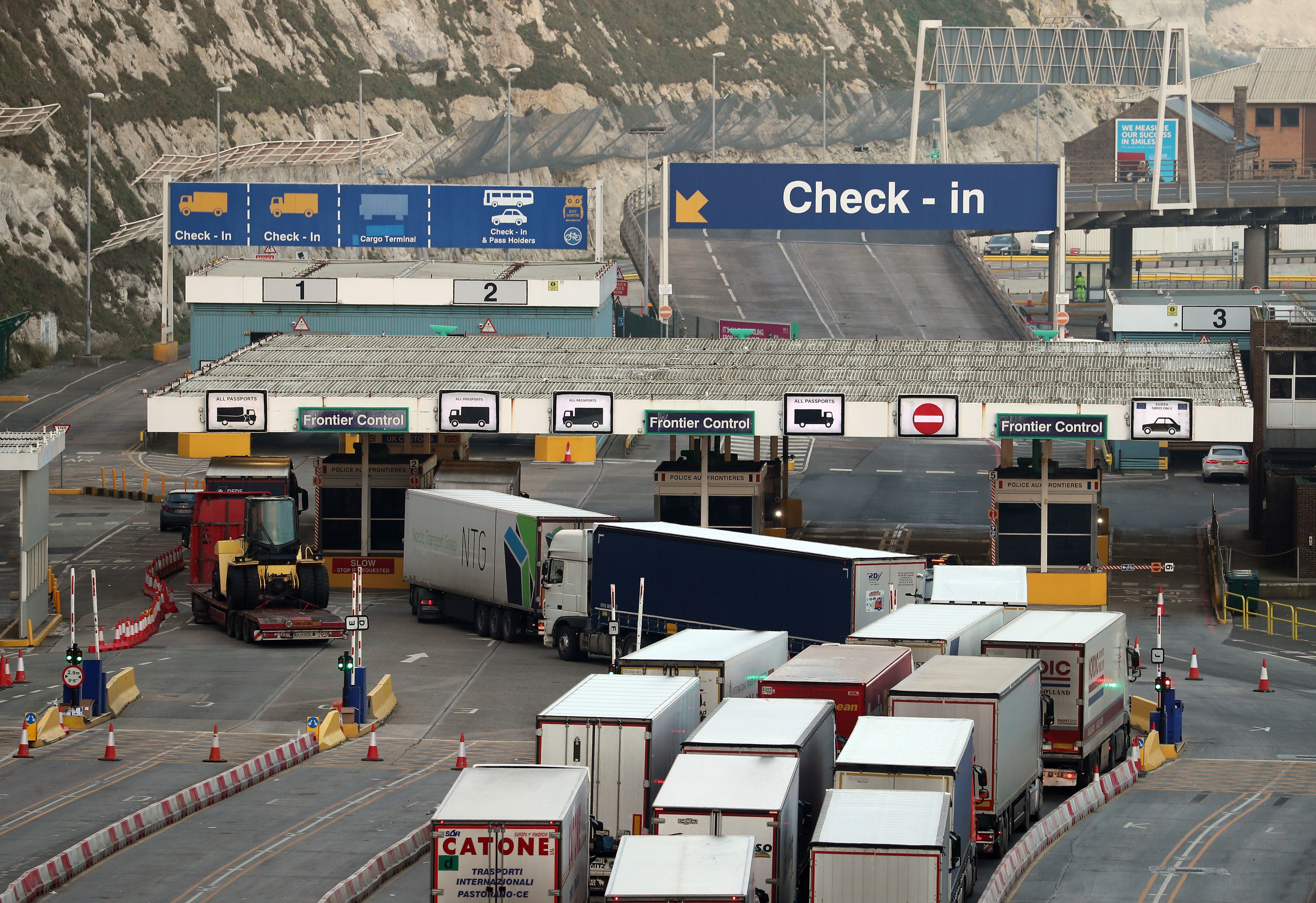Brexit disruption saw UK goods trade with EU plunge by 23% in first quarter
Exports to Ireland worst affected, official figures show

Your support helps us to tell the story
From reproductive rights to climate change to Big Tech, The Independent is on the ground when the story is developing. Whether it's investigating the financials of Elon Musk's pro-Trump PAC or producing our latest documentary, 'The A Word', which shines a light on the American women fighting for reproductive rights, we know how important it is to parse out the facts from the messaging.
At such a critical moment in US history, we need reporters on the ground. Your donation allows us to keep sending journalists to speak to both sides of the story.
The Independent is trusted by Americans across the entire political spectrum. And unlike many other quality news outlets, we choose not to lock Americans out of our reporting and analysis with paywalls. We believe quality journalism should be available to everyone, paid for by those who can afford it.
Your support makes all the difference.The UK’s trade in goods with EU countries fell by 23 per cent in the first quarter of the year, with exports to Ireland particularly badly hit by Brexit-related disruption.
Trade with non-EU countries was down by only 0.8 per cent, official figures show. The data was compared with 2018 because that was the last time that UK trade patterns were “relatively stable”, the Office for National Statistics (ONS) said in its latest analysis of the impact of Brexit and the coronavirus on the UK economy.
Among businesses that reported challenges at the end of February 2021, Brexit was the most commonly cited cause.
That was a rise from mid-December 2020. In contrast, the numbers reporting the coronavirus as their main challenge fell over the same period.
Excluding precious metals, imports of goods from EU countries fell by £14bn (or 21.7 per cent) between the final three months of 2020 and the first three months of 2021.
Exports decreased by £7.1bn (18.1 per cent). The falls were consistent across a number of trading partners, the ONS said.
Imports from Germany have declined since April 2019, coinciding with increased uncertainty around EU trade, and later, in 2020, the pandemic.
The ONS cautioned that it was difficult to disentangle the effects of the pandemic and Brexit. However, it added: “While this evidence does not provide a causal link between the end of the EU transition period and the decrease in total trade observed in the first quarter of 2021, it does provide insight into whether traders are experiencing more challenge with the coronavirus or the end of the transition period, and how these have changed over time.”
Separate figures showed that government borrowing fell in April and was lower than analysts had expected.
As lockdown restrictions began to ease, net borrowing by the public sector came in at £31.7bn. The figure was £15.6bn less than in the same month a year ago, but it was still the second highest borrowing figure for any April on record.
Tax receipts for the month were £58bn, up £3.8bn on April 2020. Central government bodies spent £95.9bn – down £12.9bn on a year earlier.
The ONS also revised down its estimates for last year’s total deficit, which hit levels not seen since the Second World War, from £303.1bn to £300.3bn – or 14.3 per cent of gross domestic product (GDP).
Total government debt was £2.17 trillion at the end of April, the highest level since 1962, when compared with the size of the economy. However, with interest rates at historic lows, the cost of servicing the debt remains lower than in many previous years.
The chancellor, Rishi Sunak, said: “At the Budget, I set out the steps we are taking to keep the public finances on a sustainable footing by bringing debt under control over the medium term.
“But we also need to focus on driving a strong economy recovery from the pandemic. That is why the government is continuing a comprehensive package of support to help businesses and workers get back on their feet – and the evidence shows that our plan for jobs is working.”
Join our commenting forum
Join thought-provoking conversations, follow other Independent readers and see their replies
Comments